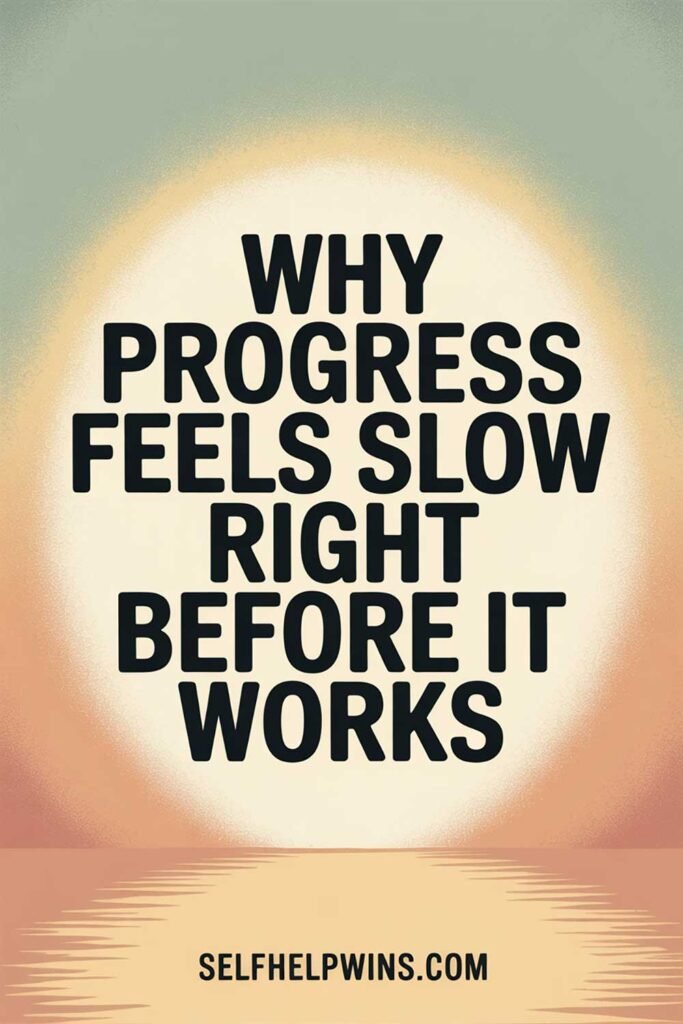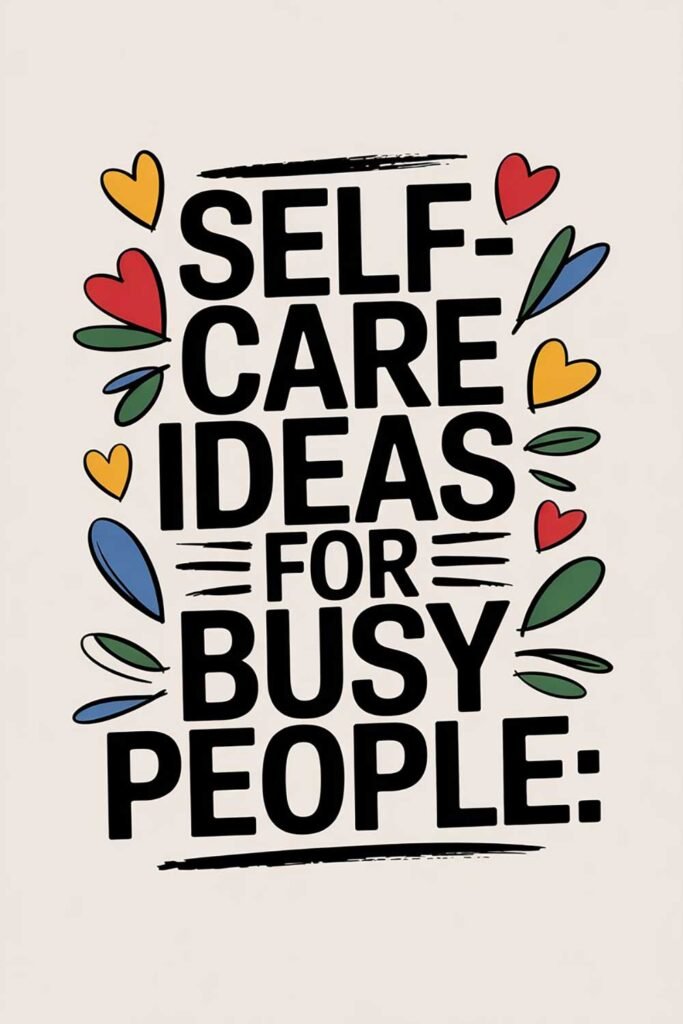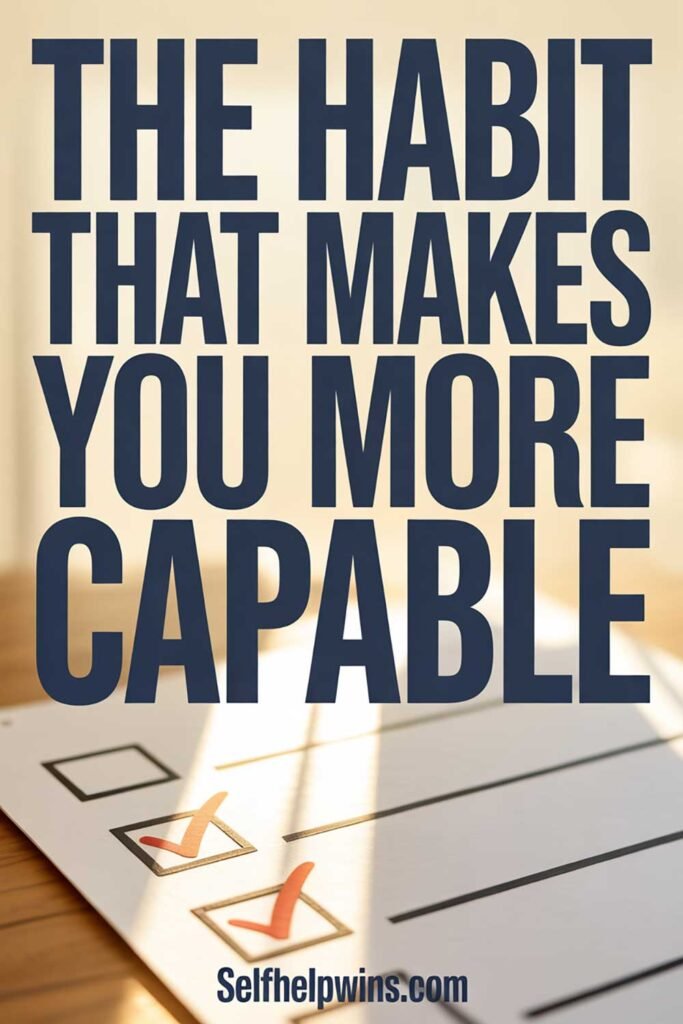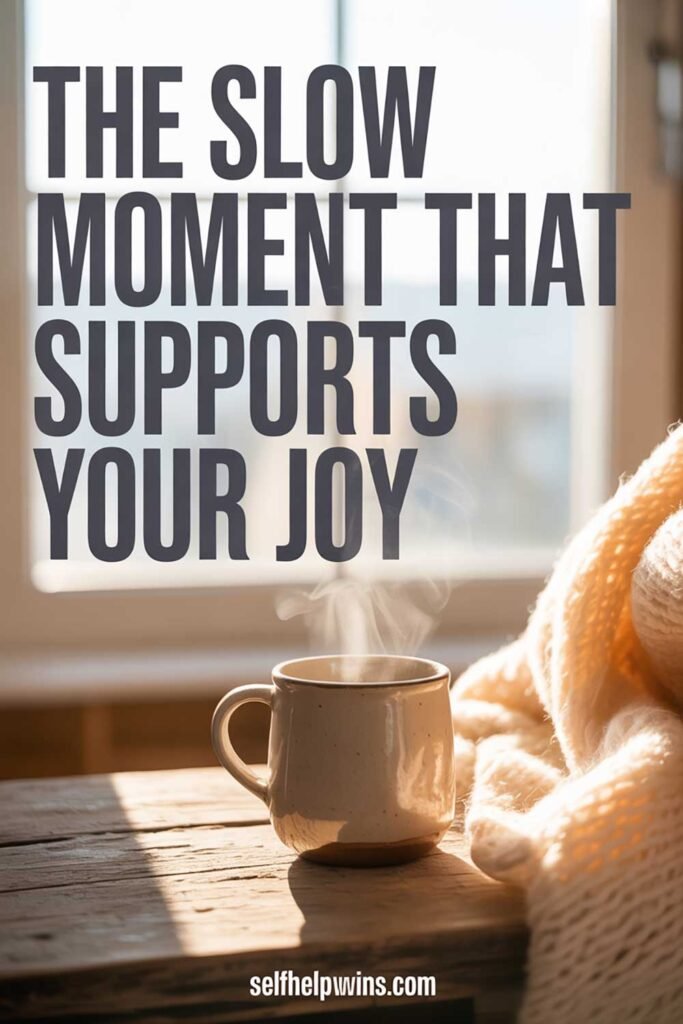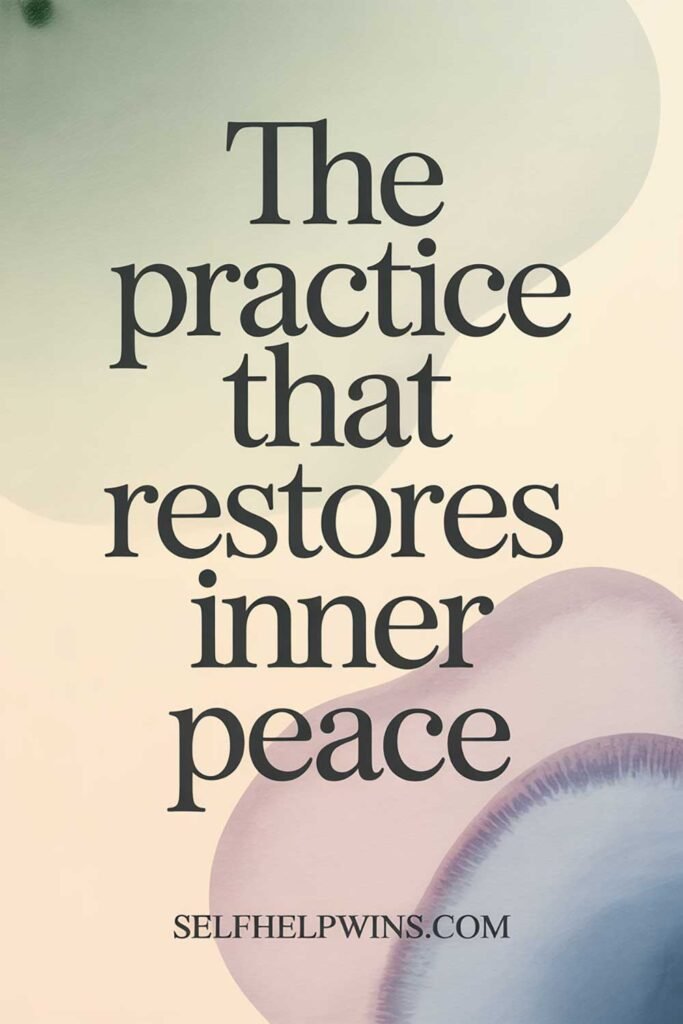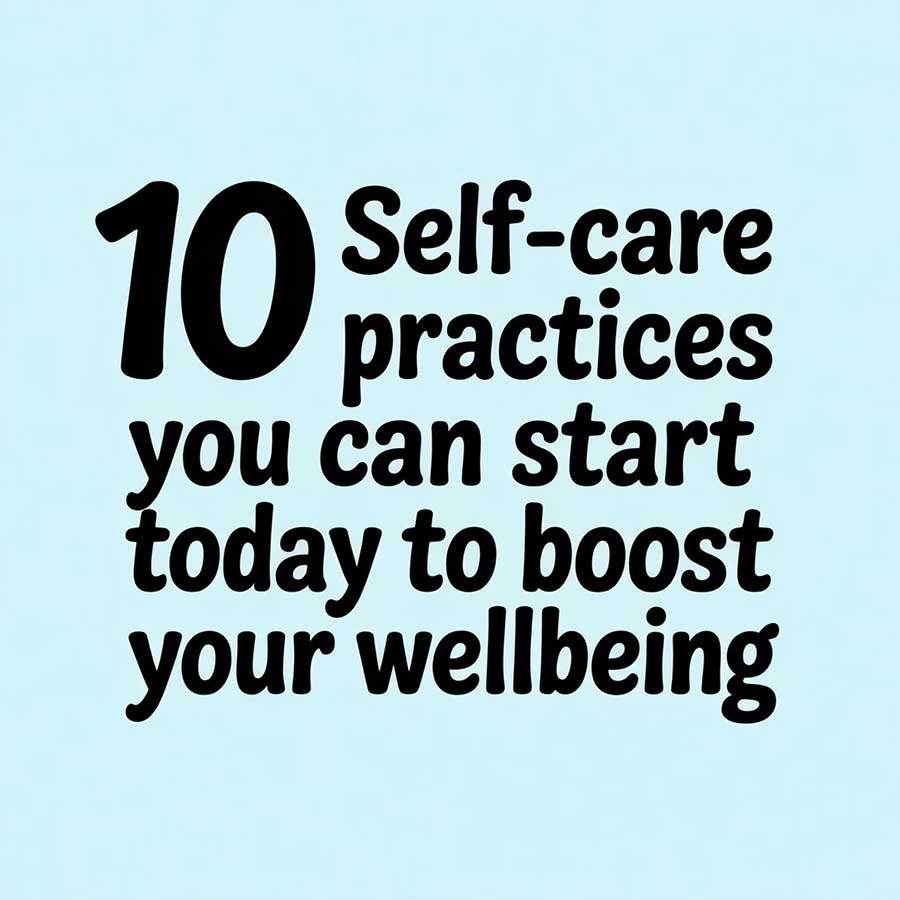
10 Self-Care Practices You Can Start Today to Boost Your Wellbeing
In the hustle and bustle of daily life, it’s easy to put your own needs on the back burner. Yet, taking time to care for yourself isn’t a luxury — it’s a necessity. Self-care is the foundation of true wellbeing, and it’s something you can start improving today with just a few intentional actions.
This article will walk you through 10 powerful self-care practices you can begin right now to boost your mental, emotional, and physical health — all backed with real-life examples to show you they really work.

1. Start Your Day with a Morning Routine
Instead of rushing straight into the day, create a simple morning ritual that sets a positive tone.
It could be:
- Stretching for 5 minutes
- Writing down 3 things you’re grateful for
- Drinking a full glass of water
- Spending 5 minutes outside
Real-Life Example:
Mark, a high-school teacher, found himself constantly stressed. By waking up just 20 minutes earlier to stretch and journal, he noticed a significant drop in his anxiety levels throughout the day.
2. Practice Mindful Breathing
Mindful breathing is one of the easiest, most effective self-care practices. It only takes a few minutes and can be done anywhere.
How to do it:
Inhale for four counts, hold for four, exhale for four. Repeat for two minutes.
Real-Life Example:
Sarah, a customer service representative, uses mindful breathing between stressful calls. She says it helps her reset and stay calm throughout her shifts.
3. Nourish Your Body with Healthy Food
What you eat affects how you feel. Prioritize real, whole foods and stay hydrated.
Simple Start:
Swap one processed snack a day with a piece of fruit, nuts, or a veggie snack.
Real-Life Example:
Derek, a software engineer, began replacing afternoon vending machine snacks with apples and peanut butter — and his energy levels skyrocketed.
4. Get Moving Every Day
Movement is essential for both mental and physical health. It doesn’t have to be intense — walking, stretching, dancing, yoga, or cycling all count!
Real-Life Example:
Megan struggled with depression. When she committed to just a 10-minute walk every evening, she noticed a steady improvement in her mood and outlook.
5. Set Healthy Boundaries
Learning to say “no” is crucial for self-care. Overcommitting yourself leads to stress and resentment.
Real-Life Example:
Tom, a small business owner, used to say yes to every client request. Setting clear work hours and sticking to them helped him regain control over his life and mental health.
6. Create a “Joy List”
Write down a list of activities that genuinely make you happy — big or small.
When you’re feeling drained, refer to your list and pick one thing.
Real-Life Example:
Julie made a joy list with simple pleasures like painting, baking cookies, and visiting the beach. She schedules at least one joyful activity into her week and feels more fulfilled.
7. Take Digital Breaks
Constant notifications can drain your energy. Designate periods of time where you disconnect from your phone, email, and social media.
Real-Life Example:
After implementing “phone-free Sundays,” Luke found he felt much more connected to his family and better able to relax and recharge.
8. Practice Gratitude
Gratitude helps shift your mindset from what’s wrong to what’s right in your life.
Start by writing down three things you’re thankful for each evening.
Real-Life Example:
Erin, who struggled with anxiety, started a gratitude journal. Over time, her focus shifted from daily worries to daily blessings, and her anxiety noticeably decreased.
9. Prioritize Sleep
Sleep is the ultimate self-care. Create a soothing nighttime routine:
- Power down electronics an hour before bed
- Dim the lights
- Listen to calming music or read a book
Real-Life Example:
Carlos began setting a strict 10 PM bedtime with no screens allowed after 9 PM. His sleep improved, and so did his productivity and mood.
10. Speak Kindly to Yourself
Negative self-talk is incredibly damaging. Become aware of your internal dialogue and practice replacing harsh thoughts with encouraging ones.
Real-Life Example:
Every time Mia caught herself thinking, “I’m not good enough,” she paused and replaced it with, “I am doing my best, and that’s enough.” Over months, her confidence grew dramatically.
20 Inspirational Quotes About Self-Care and Wellbeing
1. “Self-care is how you take your power back.”
2. “You are allowed to be both a masterpiece and a work in progress.”
3. “Taking care of yourself doesn’t mean me first, it means me too.”
4. “Self-love is the greatest middle finger of all time.”
5. “Be enough for yourself first; the rest of the world can wait.”
6. “You can’t pour from an empty cup. Take care of yourself first.”
7. “Self-care is not a luxury; it’s a necessity.”
8. “You deserve the love you so freely give to others.”
9. “Rest is not idleness; it’s a strategic investment in your wellbeing.”
10. “Self-care is how you recharge your soul.”
11. “Be kind to your mind.”
12. “Loving yourself is the most powerful self-care.”
13. “Healing yourself is an act of self-care.”
14. “Your wellbeing is worth fighting for.”
15. “Small self-care steps every day lead to big transformations.”
16. “Treat yourself like someone you are responsible for helping.”
17. “Slow down. You’re doing fine.”
18. “Self-care is not selfish. It is necessary.”
19. “Taking time for yourself isn’t wasting time.”
20. “Choose yourself every single day.”
Picture This
Imagine waking up each morning feeling refreshed, centered, and excited about the day ahead.
You move through life with calmness instead of chaos.
Your energy is vibrant, your mind is clear, and your heart is full.
Because you finally chose you — one self-care practice at a time.
What could your life look like if you started just one new self-care habit today?
Share This Article
If this article inspired you, please share it with a friend, family member, or someone who needs a reminder that they are worth taking care of. You never know who’s waiting for a little light today!
Disclaimer
This article is for informational purposes only and is based on personal experiences and insights. It is not intended to replace professional advice. Always consult with a healthcare professional before making any major lifestyle changes or decisions regarding your mental, emotional, or physical health. Results may vary.

